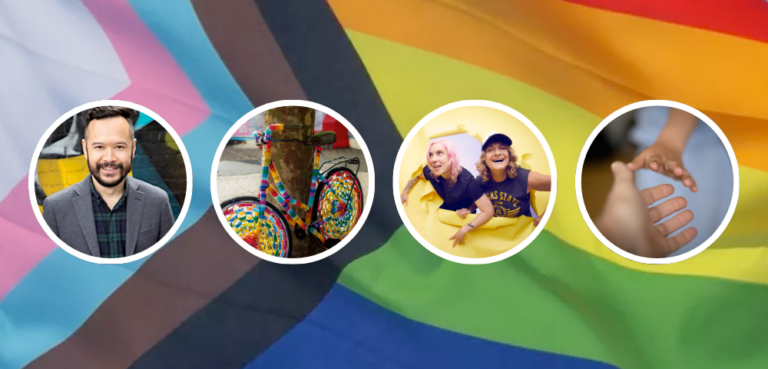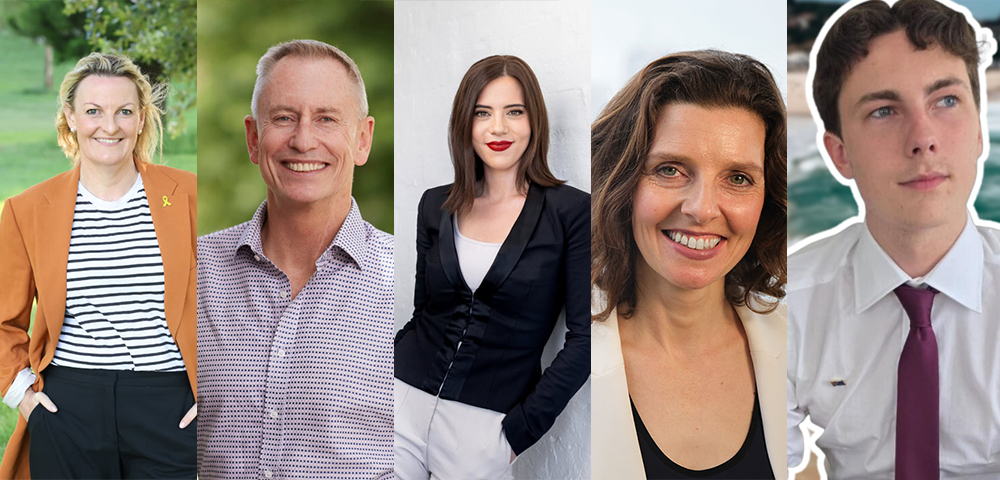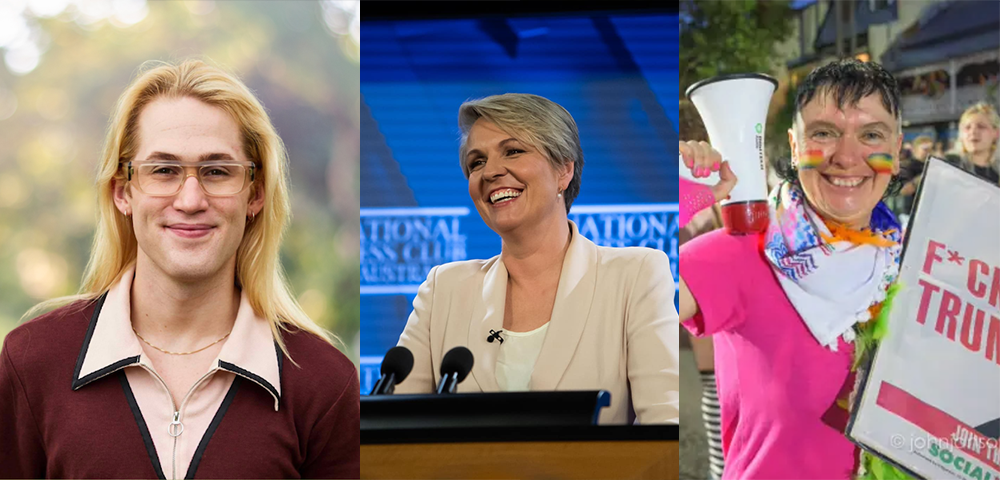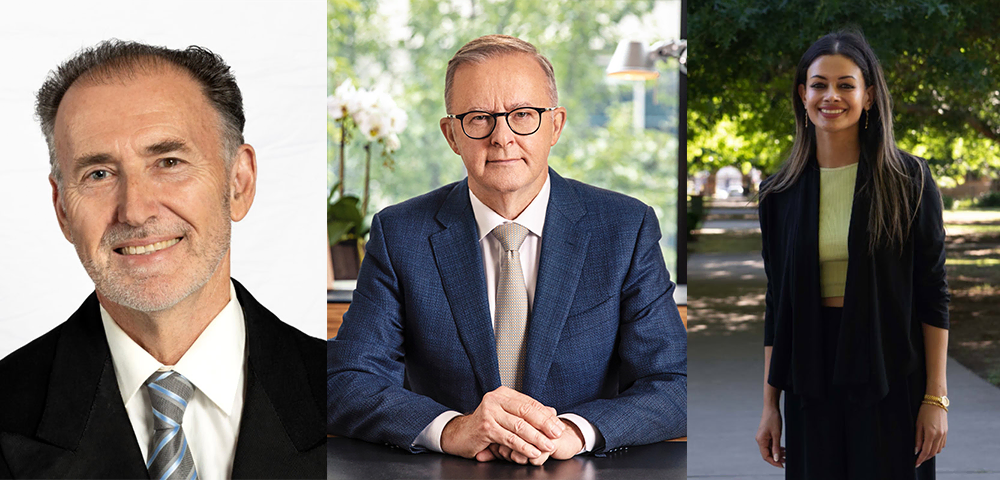
‘I carried so much shame for being gay’: Fuzzy on abuse, mental health, and visibility

Television host and DJ Faustina ‘Fuzzy’ Agolley has become one of Australia’s strongest queer champions, but she wasn’t always that way. She recently opened up to Matthew Wade about her long and at times heartbreaking journey to pride.
***
Faustina ‘Fuzzy’ Agolley has a vivid memory of her childhood.
She can recall migrating to Australia with her Chinese-Malaysian mother after her Ghanaian father passed away. She can recall spiritedly dancing to pop music on a beach in Malaysia during their six-month stopover.
And at the age of seven, she can recall having feelings for women.
However, due to a lack of visible lesbian representation, cultural taboos, and casual homophobia, she would ultimately suppress the latter for more than 20 years, leading to a life of anxiety and struggles with mental health.
“When I was a kid I stumbled across two Asian women kissing on SBS, and I could identify with that, but I shut down those feelings for the rest of my upbringing,” she says.
“I didn’t know how to place it in my mind, and while it felt like the right way to feel, the world was telling me it wasn’t okay.
“There was nothing in society that I could latch onto that would let me be that way.”
At one point, when Fuzzy was in London visiting her Ghanaian relatives, the topic of queer issues came up, and one of her cousins said that if you’re gay in Ghana, you’re dead.
“When you’re a closeted gay you’re hyper aware of anything brought up about gay people, and I remember my body seizing and shutting down – I thought, I can’t be who I am in my home countries,” she says. “It really put the terror in me.”
At another point, Fuzzy and some of her classmates were watching The Colour Purple on television, and during the scene where Shug kisses Celie, one of her dearest friends said “ew, turn it off”.
“That was another moment telling me it wasn’t okay to be gay,” she says.
It wasn’t until Fuzzy was in long-term relationships with men – both her first boyfriend and another, far more toxic and abusive relationship – that she had clarity around her sexuality.
One night she had a dream she was romantically involved with another woman. She had been ecstatic in the dream, to the point where she woke up with such self-assuredness around her sexuality that she had to tell her then-boyfriend she thought she might be gay. It didn’t go well.
“It wasn’t received well by my first boyfriend, and I can understand that with compassion now, but back then I thought he was selfish,” she says.
“So I shut down those feelings again. Then, in another relationship, I had the same dream, but that was far worse – it was the darkest experience I’ve ever had.
“When I told that boyfriend I thought I was gay, it gave him ammunition to debase and belittle me, I had no genuine support. I didn’t realise how much damage that did.
“I spent years after that where I wasn’t in a significant relationship with anyone, I just sat on the sidelines and spent thousands on therapy to try and pull out the weeds that had been planted by that toxic relationship.”
The penny dropped for Fuzzy a number of years later after meeting queer women abroad, women who talked about same-sex relationships and queer politics deep into the night and provided a safe environment for her to come to terms with her sexuality.
This, coupled with diving headfirst into dating women for the first time – including a famous L.A. actress – was what prompted Fuzzy to ultimately come out.

In 2015, she made the announcement on her birthday, and had friends over to celebrate with rainbow cake. In a post on her blog she wrote, “as black as my skin, as Chinese as my blood, and as Australian and British as my nationalities, I’m also a proud gay woman”, words that had come to her while she was out running that very morning.
“It was after I came out that I understood the importance of coming out,” she says. “If kids out there can identify with my story somehow, then I’ve done my part.”
While she’s now in a far more positive and empowered place as a gay woman than she was before, Fuzzy says it’s important for people to recognise the disproportionate ways mental health affects the LGBTI community.
Despite building a successful career, from hosting Video Hits and co-hosting The Voice to DJing for Oprah, the stress and anxiety that had permeated her life as a result of both an abusive relationship and suppressing her sexuality took its toll.
She says she was self-sabotaging opportunities, and carrying “so much shame” for being gay.
“Mental health and the stigma around mental health among LGBTI people are so common, and we struggle so much,” she says.
“I had to put on a happy face for a long time, and when I was off-camera I was depressed. My self-confidence was in the gutter.
“The Yes debate last year showed that even the strongest people can be triggered and have a breakdown – I don’t know anyone who didn’t want to stay indoors, or who didn’t have some form of childhood trauma brought up.”
Now, as a proud, queer, woman of colour, Fuzzy hopes to provide the visibility that she didn’t have growing up.
“I am a new woman,” she says.
“I’ve started an eight week course with [motivational speaker and social commentator] Mel Robbins and she’s had a tremendous impact on my life – I’ve been cured of my anxiety, it’s nuts.
“She gave me the tools to highlight what had been holding me back, and now I feel a responsibility to be visible. We can’t ask for permission anymore, we have to show up and bring a seat to the table.”
She adds that while queer identities continue to become increasingly visible, there are still young LGBTI people struggling around the country, and she hopes her story can go some way towards helping them.
“If you’re in a situation where your family aren’t supporting you or you have friends that don’t have your best interests at heart, do everything you can to change that,” she says.
“Bring people in that can support you, because you’ll need it, and look for positive messages in the media. Try and cut yourself off from any sort of negativity.
“And if you know you have issues with mental health, try and find some help.”
Amidst television and DJing gigs, Fuzzy says she wants to help tell more diverse LGBTI stories in Australia, stories from different cultures and backgrounds.
“That’s why I’m here,” she says. “It’s my life purpose. It’s the mark I want to leave.”
If you or someone you know is struggling with mental health or wellbeing, visit beyondblue.org.au or call Lifeline Australia on 13 11 14.









